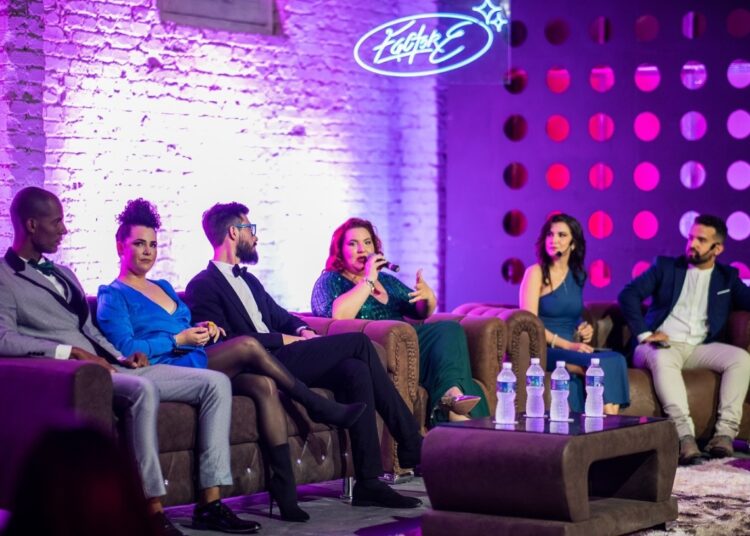In November 2024 saw the launching of Factor E, a very innovative yet challenging project: a talent show for Cuban entrepreneurs.
In the first 72 hours after its launch, nearly 200 business owners had registered, motivated by the initiative and its ambitious prize of $10,000 in technologies, supplies and raw materials.
The winner will be the owner of the best “E gene,” or entrepreneurial gene, as the organizers have called what they seek to identify and measure in the competition, because “what we are evaluating, while it is the individual’s business, is also the entrepreneur’s capacity,” explains Andy José Rivera, director of operations and host of Factor E.
Only 12 of the entrants made it to the competition, after undergoing a pre-selection and interview process.
The talent show is scheduled to premiere early next year. It will have ten episodes, the first five of which will focus on the competitors’ work with coaches and then the jury will begin their tests. The program will be available on YouTube and in the weekly package.
“The contestants will have to overcome very Cuban challenges, very fun challenges,” is all Rivero advances.
From words to action
The project, created by Yeline Ramos, general manager of Nihao 53 and current CEO of Factor E, now has more than twenty sponsors.
“When we started thinking about Factor E, we wanted to create a space where ventures with a shared goal could coexist, which in this case was to foster creation, to foster the Cuban business ecosystem as such. What we were clear about was that we wanted to create a kind of talent show that had the narrative of a competition but also inspired, connected, and motivated new actors, new Cuban entrepreneurs,” Rivera tells us.
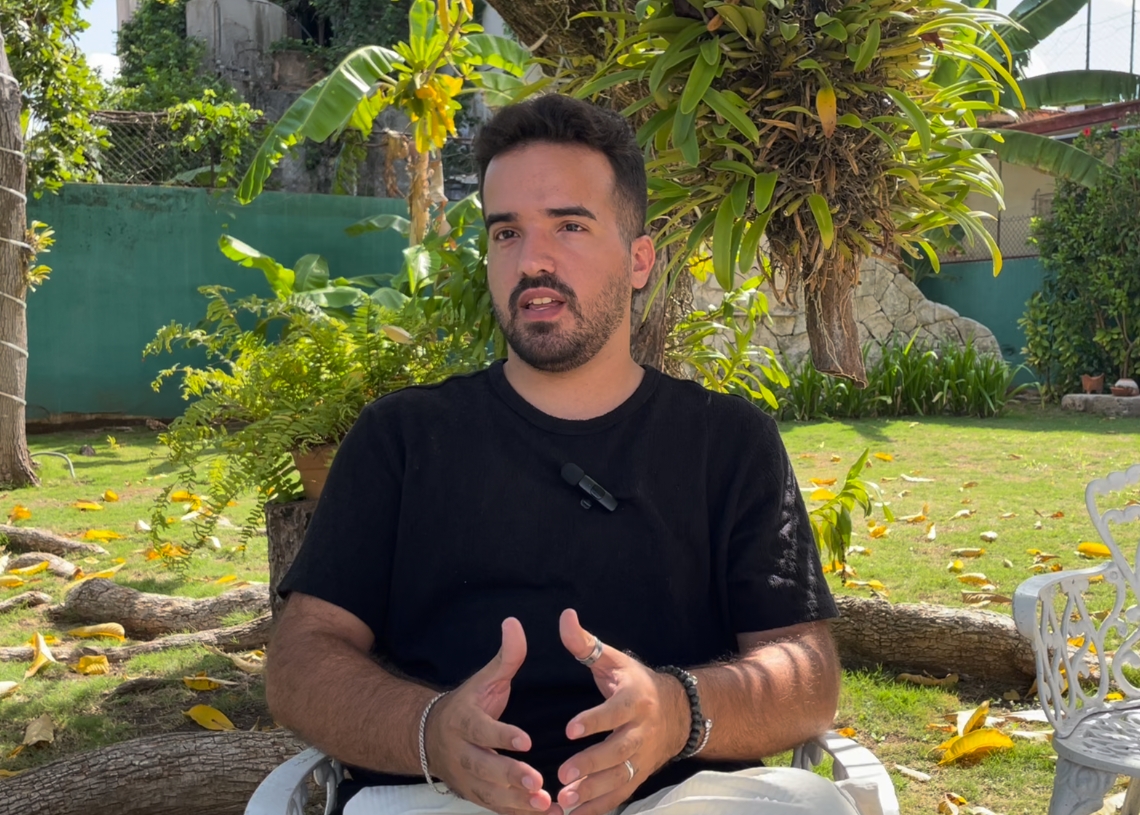
That clear idea quickly began to evolve in response to the needs that the contestants themselves were demonstrating existed in the sector and the opportunities and ideas that emerged due to the lengthy production times for such an ambitious audiovisual project.
“We realized through the pre-selection and interview process that there was a need for training, for knowing how to do business, how to scale a business. Entrepreneurs came to us and weren’t clear about their mission or vision, whether their business was scalable or not, or they didn’t have a clear pitch. There was a huge need for this information and training, and we decided to explore other areas.”
This is how the Labs were born, lectures dedicated to addressing various areas of business management, given by names that are now benchmarks for entrepreneurship in Cuba.
From the interest in motivation, “Showporation” was also born, the Factor E podcast that just released its seventh episode. In it, its guests talk about their experiences starting businesses in Cuba, their life stories and overcoming challenges, and, above all, how many times they made mistakes or failed and how they got back on their feet and made their projects succeed.
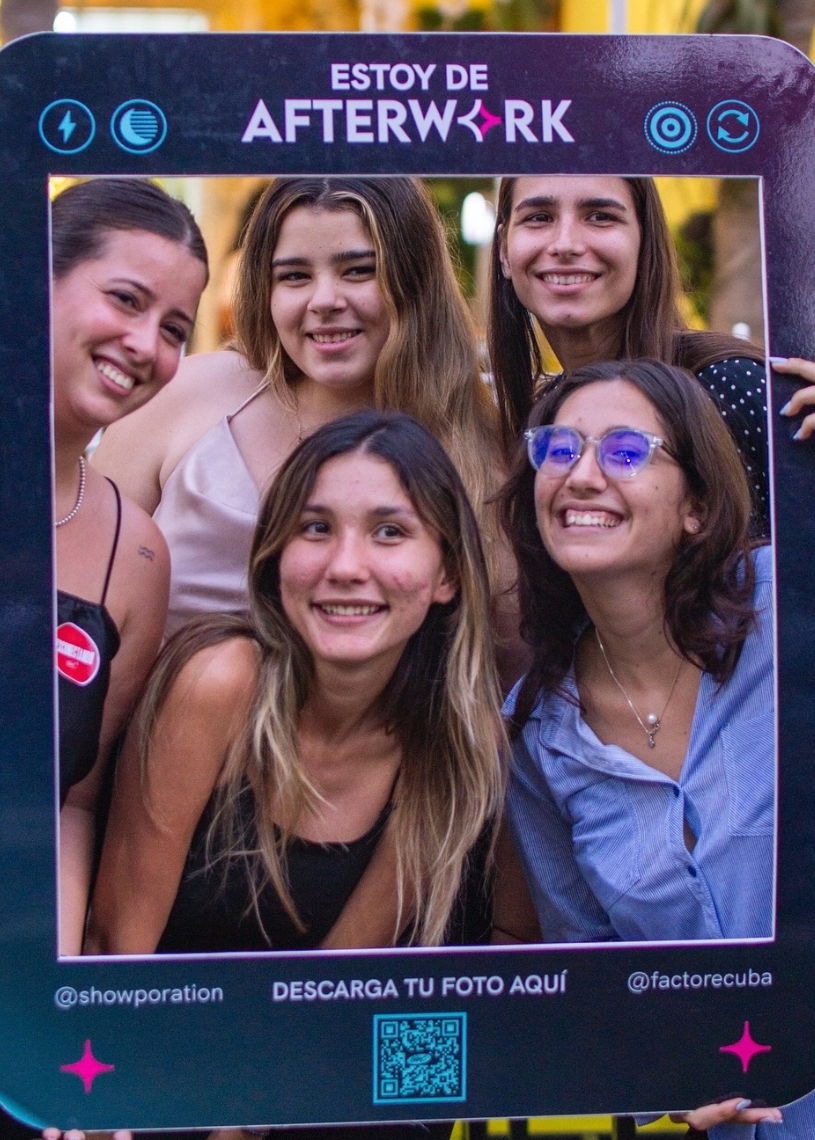
To unite communities and foster natural exchanges, they then created “Afterwork by Factor E,” a space where, at the end of a work week, entrepreneurs can attend a meeting where they can choose whether to talk business, meet new colleagues, or just enjoy and relax.
In the ring…
The contestants for the first season of Factor E were announced in December 2024. Filming for the show didn’t begin until July 2025, during which time the participants shared training spaces, creating professional and personal bonds. It was an unusual process for this type of competition, but one that provided a unique experience for them and the entire team.
“$10,000 in technology can be the difference between your business succeeding or failing. However, most of the time, they’re just giving each other advice and supporting each other, and that’s something that’s priceless. In the end, I think this first generation of Factor E, having spent so much time and so many things together, has managed to consolidate itself as a family.
“Factor E is a space where we’re not here to compete; we’re here to come together and help entrepreneurs move forward. We understand that competition as such doesn’t exist because there’s room and a market for everyone, because your customer isn’t my customer, because my products aren’t your products, my suppliers aren’t yours, and besides, it’s great to have a rival, so to speak, who raises the bar a bit and doesn’t let you stay in your comfort zone,” explains Rivera.
However, there are twelve competitors, and only one of them will be the winner, according to a jury composed of Julio Martínez, CEO of Cartel Estudio; Alejandro Palmarola, CEO of La Quinta de los Molinos; and Yessie Guridi, CEO and founder of Cafetalex and Mokalex. The contestants have the support of coaches Mario Marketing, founder of Nos Fuimos; Aldo Álvarez, senior partner of Mercatoria; and Darien García, general director of Gestoría Confías.
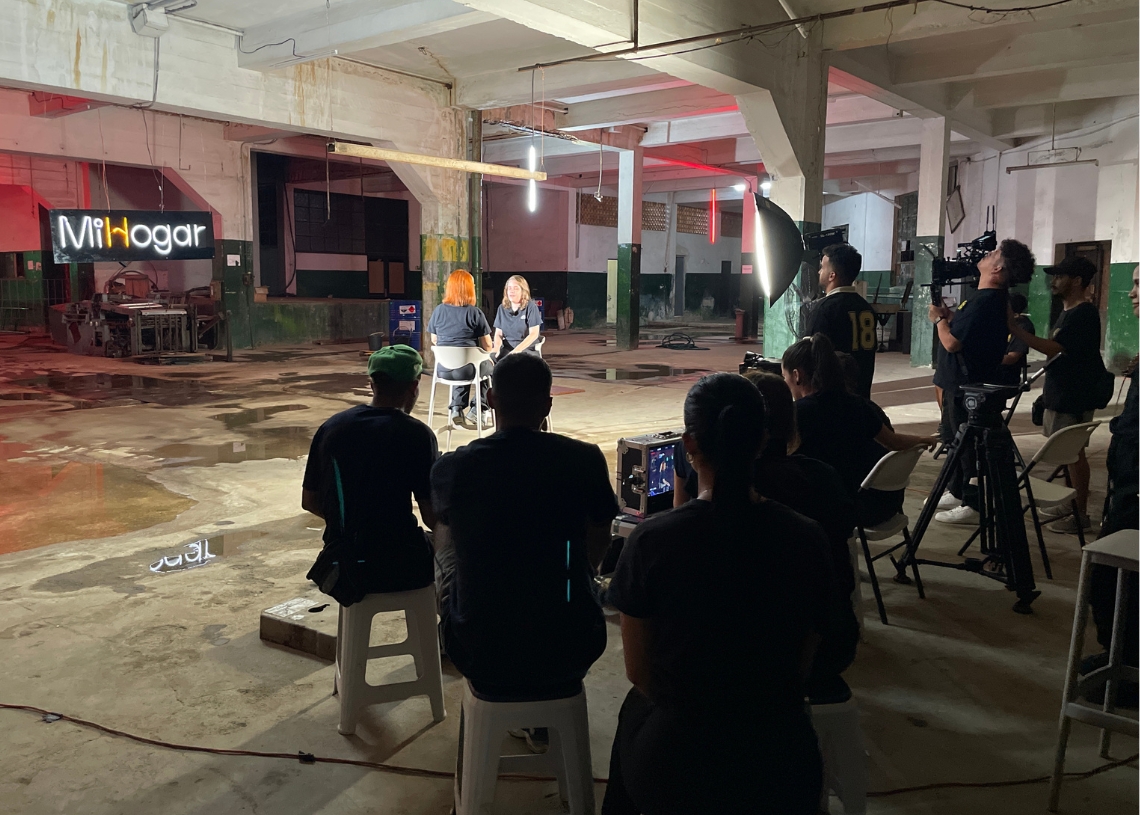
“In business, in ventures, in entrepreneurship, not everyone who wins means they’re going to be a winner, and this may sound like a bit of a tongue-twister. Entrepreneurs can win a competition and not be great businesspeople, or you can have lost the competition, or even been selected from the first rounds, and be a great businessperson. Because what it takes as an entrepreneur is to be systematic, persistent and not see failures, but rather see that the path wasn’t that way, what I need to change, what I need to improve to move forward, and that’s what I’ve been trying to convey to them,” Darién García explains about the vision the coaches worked with.
For her part, Yessie Guridi says that as a judge, she came to Factor E to “discover the nature of the Cuban entrepreneur, which is closely linked to creativity, to creative lucidity, because a Cuban entrepreneur faces a lot of challenges every day, just as the contestants will face on the program. What I’m going to measure is precisely that creativity, that capacity to respond, to confront any type of crisis. And, of course, the resolution.”
Among those whose talent or ability is being tested are entrepreneurs of different ages and business types. The rules only required that they respond to one of the forms of non-state management in the country and that they be in a start-up or embryonic stage, to ensure that the conditions for each contestant are not so unequal.
“I think the experience with Factor E has been quite constructive, especially because of all the people we’ve met here and with whom we’ve made connections and friendships, and I think that’s what we take away most,” says Gabriela López González, founder and general coordinator of the Aldama Project and one of the contestants.
“This is a vision that almost all the participants share, and they let us see it when our team had access to the final day of filming for the talent show.”
“Here, the most important thing for all of us is not who wins, because in the end only one person will win. Here, the important thing is the process, the alliances we’ll forge among ourselves, meeting people with visions or businesses different from yours, but with the same passion, with the same gene of trying to undertake or try to do things in Cuba, which is so needed,” thinks Fernando Arias, creator of Venko, a sportswear brand.
In the end, the program has served almost everyone as a space where, more than just showcasing their abilities, they’ve learned a lot and they’ve demonstrated it in every challenge.
“In some way, it’s created a need for us to collaborate, to understand that it’s necessary not only to generate revenue, but also to create value, to give others opportunities to do things, to manage and collaborate with people to make life easier, more comfortable, and to do business more easily in Cuba, which is the most important thing. It’s helped us ground those ideas and realize the ideas we have as business owners, and it shows us that projects are closer than you think,” summarizes Marlon Vázquez of El Duro, a business that revives the Cuban popsicle that many of us grew up with, but which we’ve established as a homemade product to this day.
The competitors also share that spirit of this being a lasting and inspiring project.
“When Factor E comes out, I think it will reach a lot of people because we’re young people here who started businesses from scratch. We’re individuals and I think it will be an example for many people,” is what Joel López Tamayo, competitor and creator of Jojo Acuapónicos, hopes to achieve.
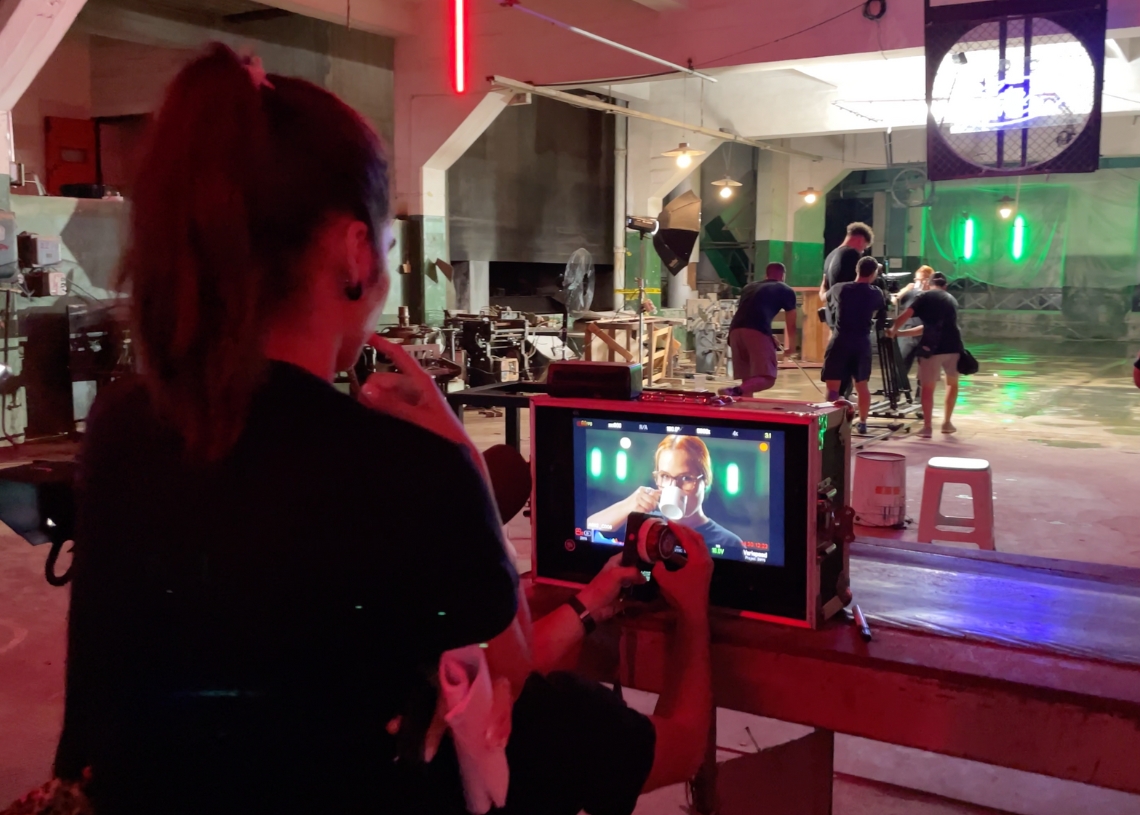
Nayla Oliva, owner of La Comarca, wants to make known several things through the contest: “The first is that my example will serve to inspire others to take up ventures. The second is for the world to see that in Cuba, although not everything is as we would like it to be, we from within can make things change and that you can undertake something based on what you know with the passion that serves us and can serve many other people.”
“I would encourage them to be part of a project like this, where they definitely put to the test many things one doesn’t know one can do, and that’s the most beautiful, most productive part, because one always thinks one has a limit or that one can’t achieve something. These are limitations, mental barriers that we impose on ourselves for no reason, because we leave them there and then you face different situations and realize that you can,” recommends Doria Alderete, head of Progresiva.
“I would like the image that the public is left with is that in difficult times, where so many people are thinking about moving or so many people are thinking about importing or thinking about other things, there are crazy people who still dream that it’s possible to do things in Cuba, because Cuba needs people who decide to stay,” summarizes Fernando Arias.

